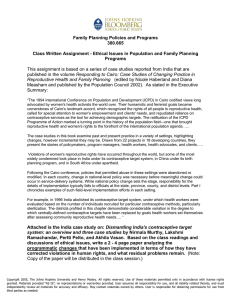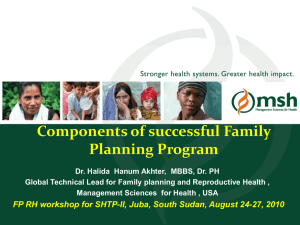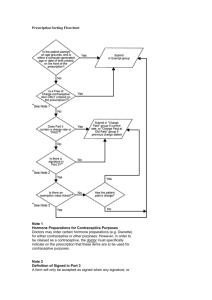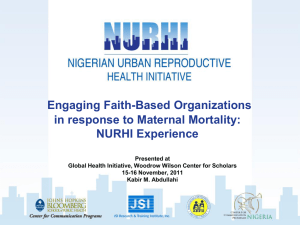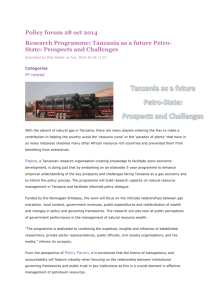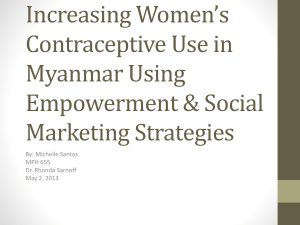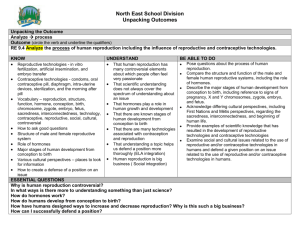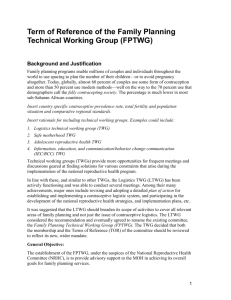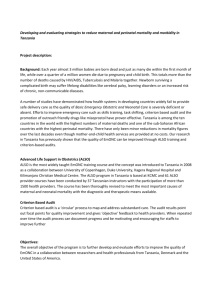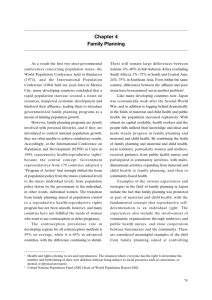Honorable Minister of Health and Social Welfare
advertisement
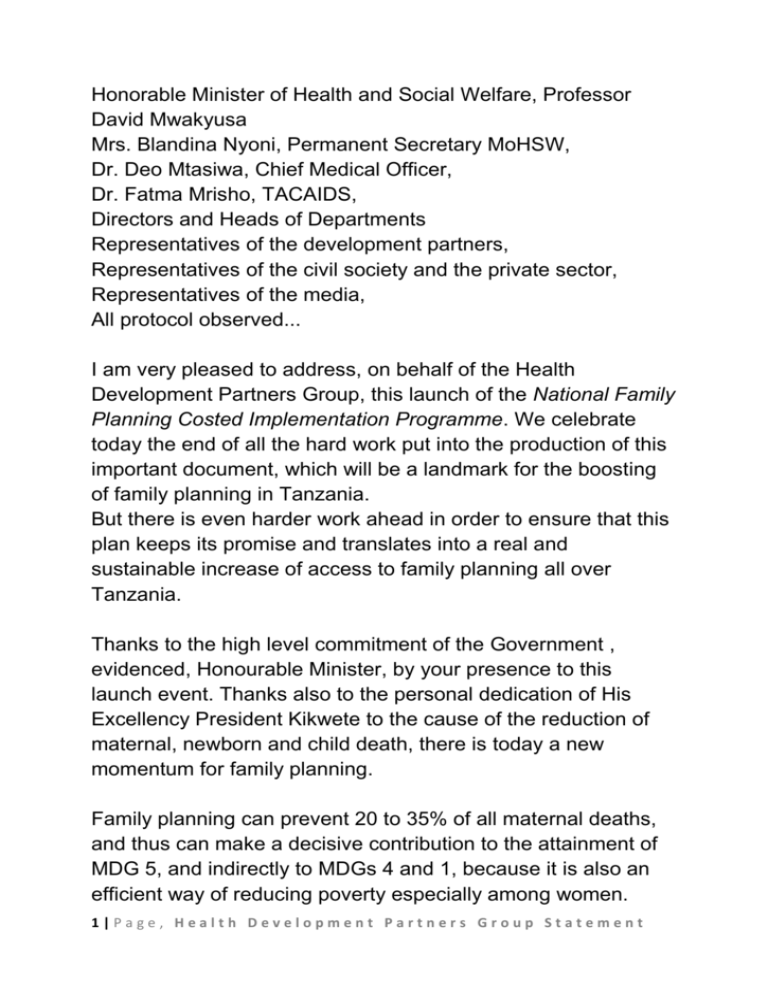
Honorable Minister of Health and Social Welfare, Professor David Mwakyusa Mrs. Blandina Nyoni, Permanent Secretary MoHSW, Dr. Deo Mtasiwa, Chief Medical Officer, Dr. Fatma Mrisho, TACAIDS, Directors and Heads of Departments Representatives of the development partners, Representatives of the civil society and the private sector, Representatives of the media, All protocol observed... I am very pleased to address, on behalf of the Health Development Partners Group, this launch of the National Family Planning Costed Implementation Programme. We celebrate today the end of all the hard work put into the production of this important document, which will be a landmark for the boosting of family planning in Tanzania. But there is even harder work ahead in order to ensure that this plan keeps its promise and translates into a real and sustainable increase of access to family planning all over Tanzania. Thanks to the high level commitment of the Government , evidenced, Honourable Minister, by your presence to this launch event. Thanks also to the personal dedication of His Excellency President Kikwete to the cause of the reduction of maternal, newborn and child death, there is today a new momentum for family planning. Family planning can prevent 20 to 35% of all maternal deaths, and thus can make a decisive contribution to the attainment of MDG 5, and indirectly to MDGs 4 and 1, because it is also an efficient way of reducing poverty especially among women. 1|Page, Health Development Partners Group Statement As such we can only recommend that access to family planning be part of the MKUKUTA II, including the Contraceptive Prevalence Rate as an indicator, with regional disaggregation. Honourable Minister The 2004-05 Demographic and Health Survey results have shown that 90% of the Tanzanians have a good knowledge of family planning, but only 20% use modern contraceptive methods, with huge disparities between regions. Between 1999 and 2005 little progress has been achieved, and the unmet need of family planning in 2005 was 22%. Further analysis has shown that this figure might even be as high as 40%. This means that some 22 to 40% of women in reproductive age would like to plan their families, but do not have access to an appropriate mix of FP methods. What a tragic missed opportunity. Women and men have a right to information and to access to FP methods, so that they can make their own decision on the size of their family. We are eagerly waiting for the results of the new DHS this year to know among others the evolution of the contraceptive prevalence rate. But can we expect a significant increase of contraceptive prevalence rate, when the Tanzania National Health Accounts has shown that between 2002-03 and 200506, the total expenditures on family planning have been cut by half, and the share of family planning in the total Reproductive Health spending has gone down from 54% to a staggering 15%. Furthermore, since 2007/08 the amount allocated for Family Planning in the MTEF, not to speak of the amount released, did not meet by far the estimated need. The supply of family 2|Page, Health Development Partners Group Statement planning commodities has become erratic, and access to family planning has become irregular. In such a situation usually the poor and the people living in hard to reach areas tend to be even more deprived. So this National Family Planning Costed Implementation Programme comes very timely to remind us that we must do more for family planning. In order to move towards a more predictable and regular supply of FP commodities, the Government must endeavour to sustain financing and allocate more domestic resources, in addition to the basket and other external sources of funding. Last FY the Basket Partners approved a supplementary budget request which was to a large extent for FP commodities. Unfortunately, implementation has been slow. Basket Partners are ready and would very much approve that a larger share of these funds are allocated for priority areas like FP commodities. We know there are many conflicting priorities, but family planning is a very valuable investment. The National Roadmap to accelerate the reduction of maternal, newborn and child deaths in Tanzania has set an objective of increasing modern contraceptive prevalence rate from 20% to 60% by 2015. Tanzania can reach this ambitious target, and the Development Partners are willing to support you in that endeavour. It is obvious that we must increase the resources for family planning, but we must also strive to make a better use of the resources already available. During a recent visit of Health Facilities we have witnessed dispensaries with shortage of injectable contraceptives, and others with excessive stocks of contraceptive pills, close to expiry date. 3|Page, Health Development Partners Group Statement To reach 60% CPR coverage by 2015 will require recruiting half a million new family planning users, a year as well as maintaining the current users. Considering the Human Resource constraints, this will need innovative approaches, including task shifting among cadres, mainstreaming FP in existing services, as well as strong community based interventions. The public sector can not and should not do this alone. The private sector, and civil society should become a major partner in service delivery of FP methods, in providing information, and creating awareness. Honourable Minister The right to decide the number, timing and spacing of children, is part of the broader reproductive rights which were endorsed by 179 countries at the 1994 International Conference on Population and Development in Cairo. Progress in reproductive rights will require a multi-sectoral approach, but access to family planning is the part where the Health Sector can play a decisive role. The Health sector can ensure quick wins by covering the unmet needs of family planning and achieve results in terms of maternal health as well as poverty reduction. The costed implementation programme we are launching today is an essential tool to achieve increased access to family planning. This challenging task will require all the health sector partners to contribute to the joint effort. We can ensure you that the Health Development Partners Group is ready to support this renewed effort. As the proverb says: Penye nia pana njia When there is a will, there is a way Thank you for your attention, Asanteni sana. 4|Page, Health Development Partners Group Statement
